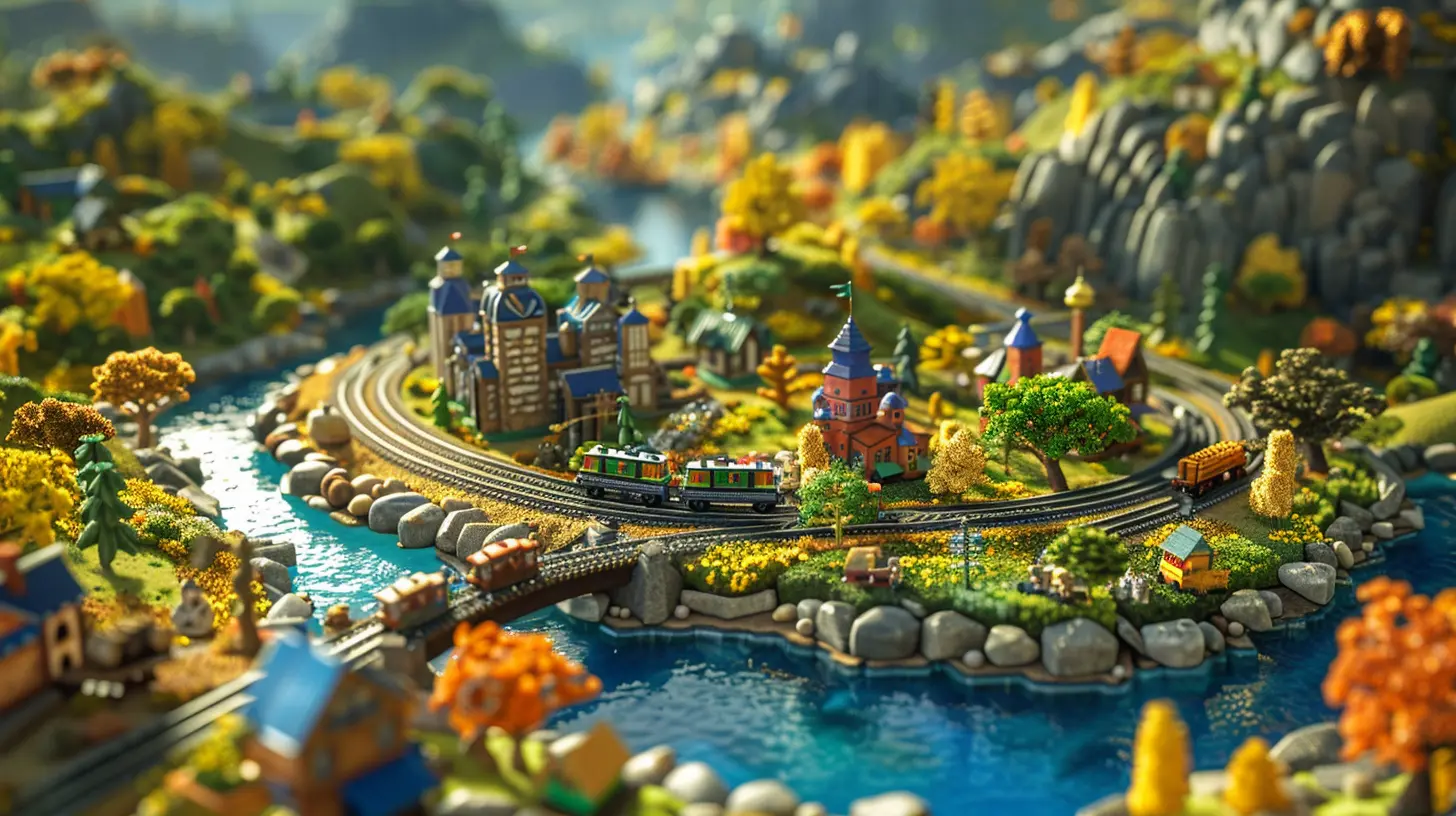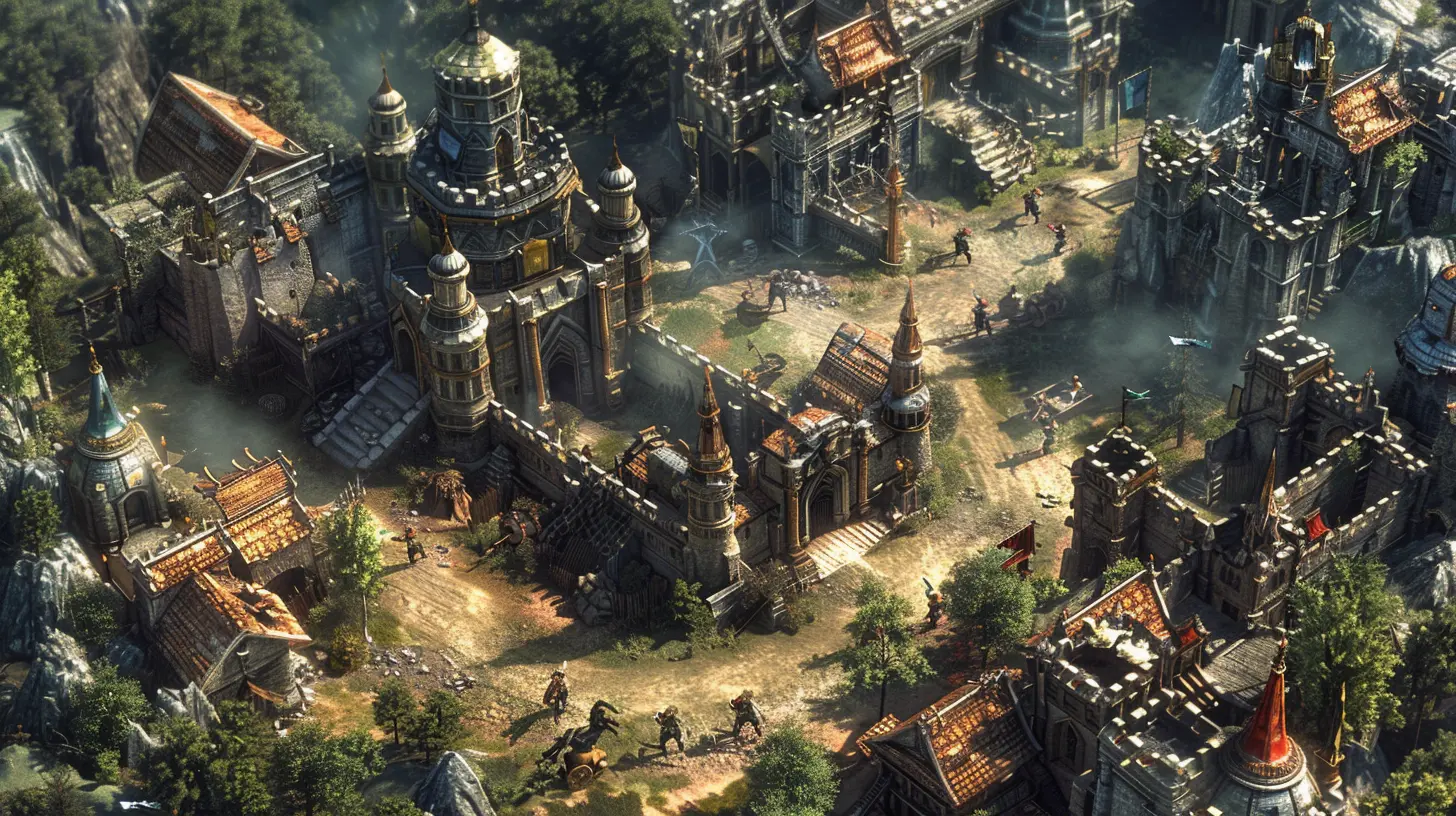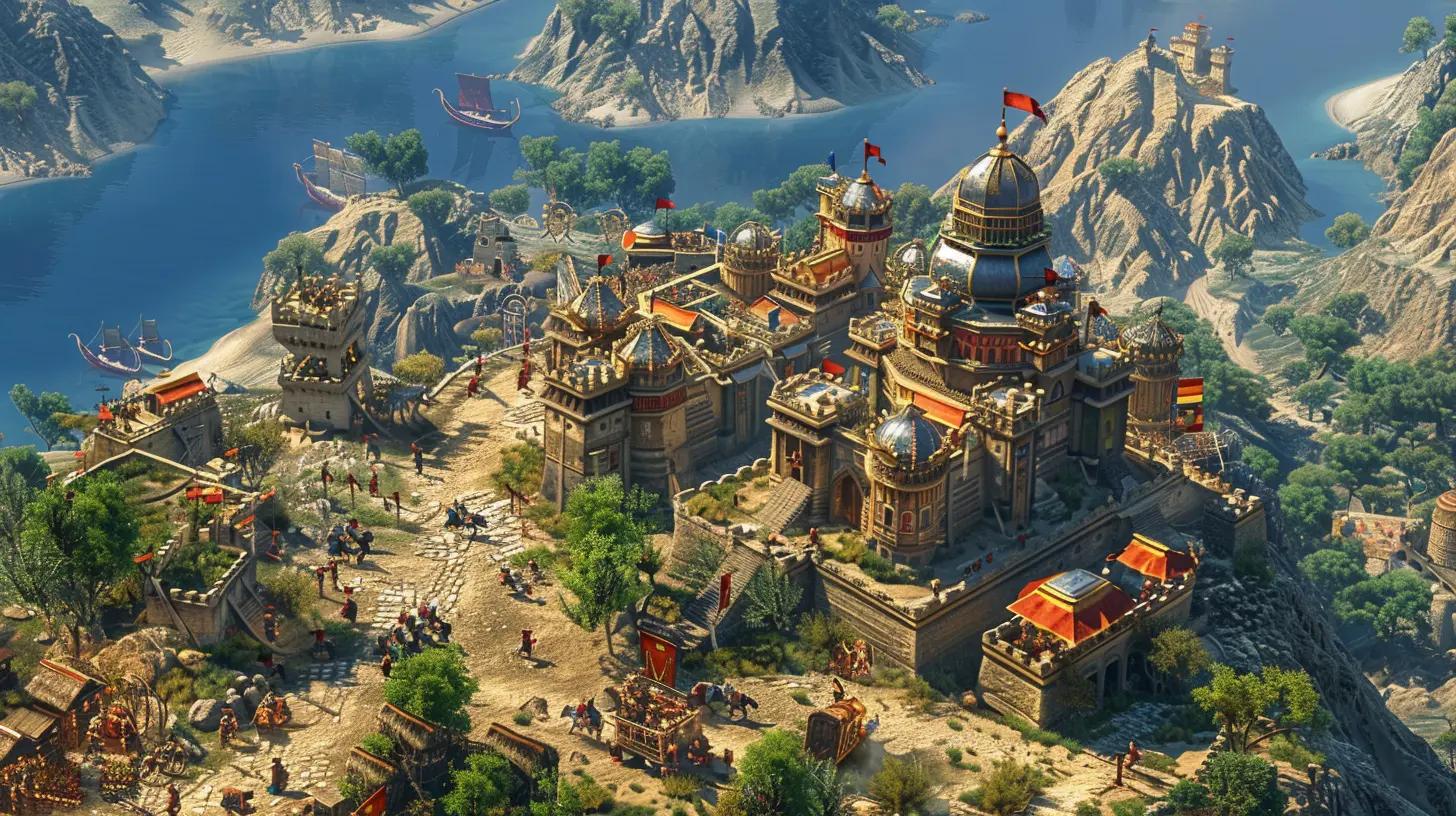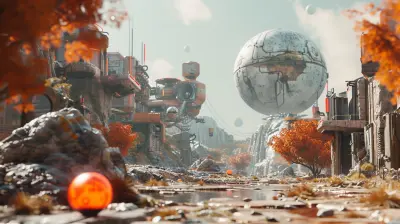Decision-Making Under Pressure: Keys to Success in Fast-Paced Strategy Games
19 August 2025
Ever found yourself gripping your mouse a little tighter, your heart pounding as you weigh your next move under a ticking clock in your favorite strategy game? Yeah, we’ve all been there. Whether you're commanding armies in StarCraft, deploying troops in Clash Royale, or trying to stay alive in a chaotic game of DOTA 2, decision-making under pressure is the name of the game.
Strategy games don’t just test your ability to outthink your opponent — they test how fast you can do it. But don’t worry. You don’t have to be a supercomputer to keep up. With the right mindset, a few tricks up your sleeve, and a little practice, you can start making smarter decisions, even under the most intense pressure.
In this guide, we’re diving deep into the keys to making solid, strategic decisions quickly and confidently in fast-paced strategy games. Let’s go!
Why Fast Decisions Matter in Strategy Games
Think about this: you’ve got 10 seconds to decide whether to attack or defend. One decision could lead you to victory, the other to defeat. There’s no time to overthink it. That’s the brutal beauty of fast-paced strategy games.Unlike turn-based games where you can sip your coffee and ponder every move, real-time and fast-paced games demand snap judgments. Whether it’s reacting to an opponent’s surprise push or adapting to a sudden resource shortage — how you respond in those high-pressure scenarios determines your success.
Good decision-making isn’t just about being smart — it’s about staying calm, thinking clearly, and moving. That’s why players who can keep a cool head under pressure often come out on top.
The Psychology of Pressure: What Happens to Your Brain?
Let’s get a bit nerdy for a second. When you’re under pressure, your brain releases stress hormones like cortisol and adrenaline. That’s not always a bad thing — they can sharpen your focus and give you a short burst of energy. But too much? It leads to tunnel vision, poor memory recall, and panic-induced misclicks (we’ve all been there).The key is to train your brain to handle the adrenaline rush — to treat pressure like a friend, not a foe. That’s how champions do it. They don’t panic when the heat is on, they thrive.
Key Principles for Making Better Decisions Under Pressure
1. Preparation is Your Armor
Want to make fast decisions? Start before the match even begins.Know your game like the back of your hand — the units, the maps, the meta, the matchups. The more familiar you are with every scenario, the less effort your brain needs to figure things out during gameplay. That frees up mental space for the unexpected stuff.
Think of it like driving: when you're just learning, every lane change feels like a life-or-death decision. But once you've been doing it for years? It's second nature.
Quick Tip: Watch pro replays and learn common strategies. Get so familiar with them that you can recognize a build in the first minute of a match.
2. Build Decision Trees in Your Head
Every great strategy gamer thinks in branches — like a decision tree. “If this happens, I’ll do this. If that happens, I’ll pivot to this.” That’s how you stay three steps ahead, even at high speed.You don’t need to create a full strategy flowchart mid-game. Just think in terms of plans and backups. Have an A-plan, a B-plan, and maybe even a desperate-Z-plan.
Example: Playing Age of Empires and your economy gets hit early? Immediately shift to Plan B: turtle-up and tech-up. Don’t sit there scratching your head — act.
3. Practice Micro-Decisions with Drills
Fast-paced games are a series of micro-decisions: move here, build this, upgrade that, predict this. You can train these like muscle memory.Pros don't become fast thinkers overnight — they grind scenarios over and over until responses are automatic. You can do drills too.
- In RTS games: Practice unit control against bots or in sandbox mode.
- In MOBAs: Play custom games focusing just on skill shots or jungling routes.
- In card battlers: Simulate draft scenarios or ranked ladder decisions offline.
These drills sharpen your instincts, making you react faster without losing quality.
4. Stay Calm: Don’t Let the Timer Own You
Pressure loves panic. If you let that ticking clock or low-resource warning freak you out, it’s game over before it begins. You need to own the pressure — not the other way around.Train yourself to slow your breathing when the going gets tough. A calm mind means clear decisions. It might sound cheesy, but taking one deep breath before a big move can literally change your reaction.
Pro Tip: Some players even develop catchphrases like “Slow is smooth, smooth is fast” to remind themselves to stay calm.
5. Use Shortcuts and Hotkeys Like a Pro
Speed equals power. And in strategy games, speed comes from efficiency — not panic-clicking.Learn and use hotkeys religiously. Customize your layout if needed. The fewer clicks it takes you to execute a move, the more mental space you save for thinking.
Example: In games like StarCraft, pro players hit over 300 actions per minute — and it’s all muscle memory. That’s not magic. That’s training.
6. Know When to Commit and When to Pivot
Pressure can trick you into sticking with a bad plan just because you’ve already put energy into it. That’s what we call “sunk cost fallacy.” Don’t fall for it.Recognize quickly when something isn’t working. Pivot. Cut your losses. Redirect your focus.
Think of it like this: If your ship’s sinking, don’t keep trying to patch holes — hop on a lifeboat.
7. Play Mind Games: Outsmart, Not Just Outreact
Remember, your opponent is under pressure too.Sometimes, the best decision is one that forces your opponent into a bad one. Bluffing a massive all-in, faking a tech switch, or baiting them into a trap — these psychological plays are next-level.
And when you're calm and collected, it's easier to read your opponent and anticipate their panic moves.
Real Stories: How Pros Deal With Pressure
Take Lee "Flash" Young Ho, the legendary StarCraft player. What made him so dominant wasn’t just mechanics — it was his cool under fire. No matter how wild the game got, Flash looked calm and made razor-sharp decisions as if he was playing chess in a library.Or look at top MOBA players like Faker in League of Legends. In the middle of five-man fights, he makes pixel-perfect moves under pressure like it’s nothing. That’s not luck. That’s mastery — built through repetition, discipline, and mental toughness.
Habits That Will Help You Improve Decision-Making
Building good habits is like building a mental training ground.- Review Your Games: Watch your own replays. See where you hesitated or made poor calls. Learn from them.
- Limit Multitasking: Focus on one decision at a time. Prioritize.
- Sleep and Hydration: A tired brain is a slow brain. Rest matters.
- Play When You’re Fresh: Avoid grinding ranked matches when you’re tilted.
- Set Mini Goals: Focus on improving one aspect per session—like scout timing or lane control.
Practice Makes Pressure Manageable
Here’s the truth: you will mess up. You’ll lose winnable games, you’ll make panic decisions, you’ll face defeat. But every match is a lesson. Every high-pressure moment is a rep in the gym of your brain.The more you face pressure, the more familiar it becomes — and the less intimidating. Eventually, you’ll start to feel excited by those tense situations because you’ll know: “This is where I shine.”
Final Thoughts: Pressure Is a Privilege
Here’s the thing. Pressure isn’t something to fear — it’s something to embrace. It means you’re in a position to make an impact. It means you’re growing.Fast-paced strategy games are arenas where the mind is tested just as much as the mechanics. With the right approach, you can turn those intense moments into your greatest strengths.
So next time you feel that heat rising — the heart racing, palms sweating — smile. That’s the signal you’re alive, in the zone, and ready. Make the move. Trust yourself. Play smart and play fast.
Because greatness isn’t born in comfort zones. It’s forged under pressure.
all images in this post were generated using AI tools
Category:
Strategy GamesAuthor:

Emery Larsen
Discussion
rate this article
2 comments
George Graham
Ah yes, decision-making under pressure! It's like trying to solve a Rubik's Cube while riding a rollercoaster—thrilling, confusing, and you might just end up screaming! Who knew strategy could be so hair-raising?
January 11, 2026 at 4:16 PM

Emery Larsen
Absolutely! It's all about keeping your cool and adapting on the fly. Thrilling indeed!
Zachary Wells
Mastering quick decision-making is essential for success in fast-paced strategy games; practice and adaptability are key!
August 26, 2025 at 5:11 PM

Emery Larsen
Absolutely! Quick decision-making and adaptability are crucial for thriving in dynamic environments. Regular practice can significantly enhance these skills.


